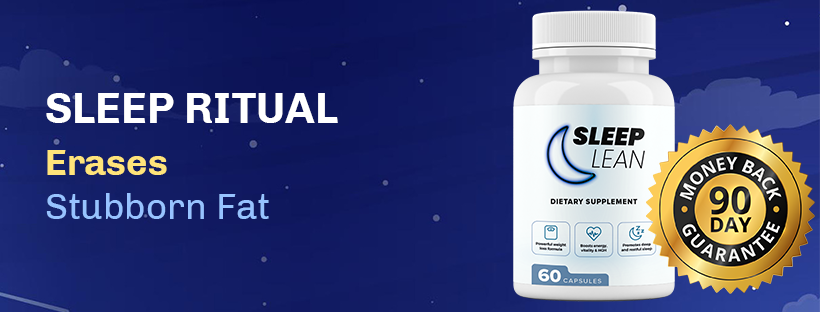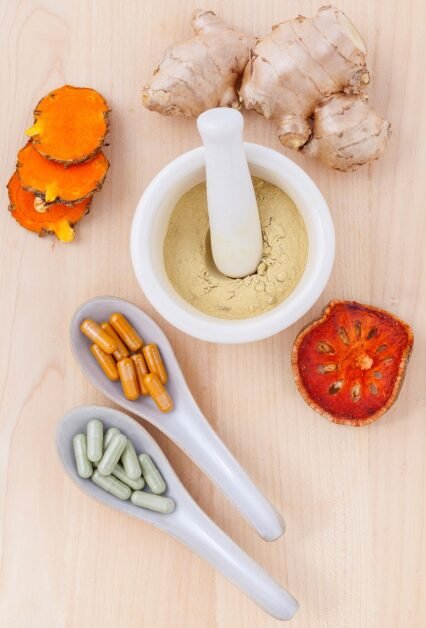Are Alternative Sweeteners Harmful?
Are alternative sweeteners harming our health? It’s a question that has sparked much debate and divided opinions. At Alternative Medicine Facts, we are dedicated to uncovering the truth behind alternative medicine practices and providing you with evidence-based information to make informed decisions about your well-being. In this article, we will examine the potential harms associated with alternative sweeteners, exploring the latest research and shedding light on whether these sugar substitutes are friend or foe. So, let’s delve into the world of alternative sweeteners and determine if they truly pose a risk to our health.

Overview of Alternative Sweeteners
Definition of alternative sweeteners
Alternative sweeteners, also known as sugar substitutes or artificial sweeteners, are substances used as alternatives to traditional table sugar (sucrose). They are typically low or zero-calorie sweetening agents that provide a sweet taste to food and beverages without the added calories of regular sugar.
Popular types of alternative sweeteners
There are several types of alternative sweeteners available on the market today. Some of the most popular ones include:
Aspartame: This widely-used artificial sweetener is found in many diet sodas, sugar-free gums, and low-calorie yogurts. It is about 200 times sweeter than sugar.
Sucralose: Sucralose is a zero-calorie sweetener commonly sold under the brand name Splenda. It is heat-stable and can be used in cooking and baking.
Stevia: Derived from the leaves of the stevia plant, stevia is a natural sweetener with no calories. It is often used as a sugar substitute in beverages, desserts, and baked goods.
Saccharin: Saccharin is one of the oldest artificial sweeteners and is about 300-500 times sweeter than sugar. It is commonly found in diet soft drinks, tabletop sweeteners, and baked goods.
Monk fruit extract: Monk fruit extract is a natural sweetener derived from the monk fruit plant. It is often used as a sugar substitute in beverages, sauces, and desserts.
Common uses of alternative sweeteners
Alternative sweeteners are widely used in a variety of food and beverage products. They are often used in the following ways:
- Reduced-calorie or sugar-free soft drinks and juices.
- Condiments such as ketchup, jams, and syrups.
- Sugar-free candies, chocolates, and desserts.
- Baked goods such as cookies, cakes, and muffins.
- Low-calorie or sugar-free yogurts and ice creams.
Safety Concerns and Controversies
The debate over the safety of alternative sweeteners
The safety of alternative sweeteners has been a topic of debate for many years. While regulatory agencies such as the U.S. Food and Drug Administration (FDA) have deemed alternative sweeteners safe for consumption, concerns still exist among some experts and individuals.
Critics’ concerns about alternative sweeteners
Critics of alternative sweeteners argue that they may have negative health effects. Some common concerns include:
Neurological effects: There have been claims that certain artificial sweeteners, such as aspartame, may have neurological effects and could potentially cause headaches, dizziness, or even seizures.
Metabolic effects: Some studies suggest that alternative sweeteners may disrupt the body’s natural metabolic processes, leading to weight gain, increased appetite, and a higher risk of metabolic diseases such as diabetes.
Gut health: There are concerns that alternative sweeteners may negatively impact gut health and the balance of beneficial bacteria in the digestive system. This could potentially affect overall health and digestion.
Allergies and sensitivities: Some individuals may have allergic reactions or sensitivities to certain alternative sweeteners, which can manifest as skin rashes, gastrointestinal distress, or respiratory symptoms.
Potential Health Risks
Effect of alternative sweeteners on weight management
One of the primary reasons people turn to alternative sweeteners is to reduce their calorie intake and manage their weight. However, the effects of alternative sweeteners on weight management are still a topic of debate. Some studies suggest that they may not be as effective as expected and may even lead to weight gain. However, more research is needed to understand the exact mechanisms involved.
Links between alternative sweeteners and metabolic diseases
While alternative sweeteners are marketed as healthier options for those with diabetes or those trying to manage their blood sugar levels, some studies suggest a potential association between certain alternative sweeteners and an increased risk of metabolic diseases like diabetes and obesity. Further research is required to establish a clear cause-and-effect relationship.
Impact of alternative sweeteners on gut health
Emerging research suggests that alternative sweeteners may affect the composition and diversity of the gut microbiota, potentially causing imbalances in gut bacteria. These imbalances have been linked to various health issues, including inflammation, metabolic disorders, and even mental health conditions. However, more research is needed to fully understand the long-term effects.
Allergies and Sensitivities
Possible allergic reactions to alternative sweeteners
While rare, some individuals may experience allergic reactions to certain alternative sweeteners. Aspartame, in particular, has been associated with allergic reactions in some individuals, resulting in symptoms such as hives, itching, swelling, and difficulty breathing. It is important to note that these allergic reactions occur in a small percentage of the population and may vary from person to person.
Common symptoms of sensitivity to alternative sweeteners
In addition to allergies, some individuals may experience sensitivity to alternative sweeteners. Symptoms of sensitivity can include digestive issues such as bloating, gas, abdominal pain, and diarrhea. These symptoms can be mild or more severe, depending on the individual’s sensitivity level and the amount of sweetener consumed.
Prevalence of allergies to specific alternative sweeteners
While allergies to alternative sweeteners are relatively rare, some individuals may have specific allergies or sensitivities to certain types of sweeteners. For instance, individuals with a known allergy to the Ragweed family may also experience cross-reactivity with stevia, as it is in the same plant family. However, it is essential to consult with a healthcare professional for a proper diagnosis if you suspect an allergy or sensitivity.

Effects on Blood Sugar and Insulin
Alternative sweeteners and their impact on blood sugar levels
Alternative sweeteners are often used as sugar substitutes by people with diabetes or those looking to control their blood sugar levels. Since most alternative sweeteners do not significantly raise blood sugar levels, they can be a useful tool for managing blood glucose in moderation. However, individual responses to alternative sweeteners may vary, and it is essential to monitor blood sugar levels carefully.
Insulin response to alternative sweeteners
Many alternative sweeteners are low or zero-calorie options, which means they do not require the body to produce insulin for energy utilization. However, some studies suggest that the taste of sweetness from alternative sweeteners may still trigger insulin release, potentially affecting hunger and satiety cues. The exact mechanisms and implications of this response are still being investigated.
Dental Health Considerations
The relationship between alternative sweeteners and dental health
A key benefit often associated with alternative sweeteners is their potential to lower the risk of tooth decay compared to regular sugars. Since alternative sweeteners are not fermentable by oral bacteria, they do not produce acid that can erode tooth enamel. As a result, alternative sweeteners can be considered tooth-friendly options.
Evidence of tooth decay with alternative sweeteners
While alternative sweeteners are generally considered safe for dental health, it is important to note that excessive consumption can still contribute to dental issues. For example, consuming excessive amounts of sugar alcohols like xylitol or erythritol can lead to gastrointestinal side effects, such as diarrhea, which may indirectly affect dental health. Furthermore, some artificially sweetened drinks may still be acidic and have the potential to erode tooth enamel.
Effectiveness of alternative sweeteners in preventing cavities
Alternative sweeteners, when used in moderation and as part of a balanced oral hygiene routine, can be effective in reducing the risk of cavities. Incorporating regular brushing, flossing, and professional dental care with the appropriate use of alternative sweeteners can help maintain good oral health. It is important to note that individual oral health habits and genetics also play a significant role in tooth decay prevention.

Cancer and Alternative Sweeteners
Controversies surrounding the link between alternative sweeteners and cancer
The relationship between alternative sweeteners and cancer has been a subject of controversy and debate. Early studies in the 1970s suggested a potential link between the artificial sweetener saccharin and bladder cancer in rats, leading to labeling requirements and warnings. However, subsequent research has not consistently supported this association, and several regulatory agencies have concluded that saccharin is not carcinogenic to humans.
Studies on the carcinogenic potential of alternative sweeteners
Extensive research has been conducted to assess the safety of alternative sweeteners, including their potential carcinogenic effects. The majority of studies have found no significant evidence to support the claim that alternative sweeteners, such as aspartame and sucralose, cause cancer in humans when consumed at normal levels. Regulatory agencies worldwide have approved these sweeteners for consumption based on comprehensive safety evaluations.
Cancer risks associated with specific alternative sweeteners
While most alternative sweeteners have been deemed safe for consumption, it is essential to note that some studies have raised concerns about specific sweeteners in high doses or in certain animal models. Cyclamate, for example, was banned in the United States due to potential carcinogenic effects observed in rats at extremely high doses. However, its use is still permitted in many other countries, and further research is needed to understand the full implications.
The Influence of Alternative Sweeteners on Appetite and Cravings
Effects of alternative sweeteners on satiety and hunger
One of the debated aspects of alternative sweeteners is their impact on appetite and food cravings. Some studies suggest that consuming alternative sweeteners may disrupt the body’s natural mechanisms of satiety and hunger regulation, potentially leading to increased food intake and weight gain. However, more research is needed to understand the complexities of these interactions fully.
Sweet cravings and alternative sweeteners
Alternative sweeteners are often used as substitutes for sugar to satisfy sweet cravings while reducing calorie intake. However, consuming sweet-tasting foods or beverages, even when they contain alternative sweeteners, can reinforce cravings for sweet flavors. This can lead to a continued desire for sugary foods and potentially undermine efforts to reduce sugar consumption. Moderation and mindful eating practices are essential in managing cravings effectively.
Regulation and Safety Standards
Government regulations on alternative sweeteners
Alternative sweeteners are subject to strict regulations in many countries to ensure their safety for consumption. Regulatory authorities, such as the FDA in the United States and the European Food Safety Authority in the European Union, thoroughly evaluate the safety and approval process for alternative sweeteners. These regulations set acceptable daily intake limits and require comprehensive safety data to be submitted by manufacturers.
The role of international agencies in assessing alternative sweeteners
In addition to national regulatory bodies, international organizations play a crucial role in assessing the safety of alternative sweeteners. The Joint Expert Committee on Food Additives (JECFA), operated jointly by the World Health Organization (WHO) and the Food and Agriculture Organization (FAO), evaluates the safety, toxicology, and dietary exposure of food additives, including alternative sweeteners. Their evaluations contribute to establishing international safety standards.
Safety assessments and limitations
The safety assessments conducted by regulatory agencies and international organizations provide valuable insights into the use and consumption of alternative sweeteners. However, it is important to recognize that these assessments are based on current scientific knowledge and may have limitations. Additional research is continually being conducted, and safety evaluations are regularly updated to ensure the most accurate information and recommendations are available.
Making Informed Choices
Considerations for using alternative sweeteners
When considering the use of alternative sweeteners, it is important to weigh the potential benefits and risks based on individual health needs and preferences. Some factors to consider include:
- Specific dietary requirements or restrictions, such as diabetes management.
- Individual tolerance and potential allergies or sensitivities to specific sweeteners.
- Potential impact on appetite, cravings, and weight management goals.
- Oral health considerations and risk of tooth decay.
- Balanced consumption alongside a varied diet and overall healthy lifestyle.
Healthy alternatives to alternative sweeteners
If you prefer to avoid alternative sweeteners altogether, there are several natural alternatives available:
Pureed fruits: Pureed fruits, such as applesauce or mashed bananas, can be used as sweeteners in baking or added to smoothies and desserts.
Honey: Honey is a natural sweetener that can be used in place of sugar in beverages, marinades, dressings, and baked goods. However, it is important to note that honey is high in calories and should be consumed in moderation.
Dates: Dates are a natural sweetener commonly used in energy bars, granola, and baked goods. They can be pureed or chopped and added to recipes as a healthier option.
Maple syrup: Maple syrup, derived from maple tree sap, is often used as a natural sweetener for pancakes, waffles, oatmeal, and various desserts.
By exploring these natural alternatives, individuals can make informed choices that align with their dietary preferences and health goals.
In conclusion, alternative sweeteners offer a range of options with different advantages and considerations. While some concerns and controversies exist, the safety of alternative sweeteners has been evaluated by regulatory agencies and international organizations. Making informed choices regarding the use of alternative sweeteners involves considering individual health needs, preferences, and moderation in consumption. It is important to consult with healthcare professionals and stay updated on the latest research to make the best decisions for overall health and well-being.










